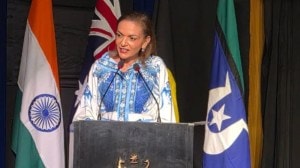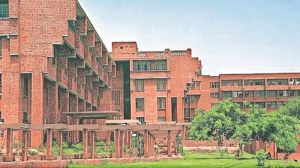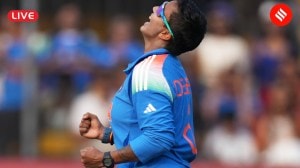A lot learnt,a lot to learn about Pakistan and terror
The terrorism trial of Tahawwur Rana offered an extraordinary look into the underworld of terrorism and espionage in South Asia and had repercussions much closer to the US.
The terrorism trial of Tahawwur Rana offered an extraordinary look into the underworld of terrorism and espionage in South Asia and had repercussions much closer to the US.
Confessed American terrorist and Pakistani spy David Coleman Headley delivered explosive revelations about how ISI officers funded,supported and directed the 2008 Mumbai attacks along with the Lashkar-e-Toiba. Because of his mix of front-line experience and high-level contacts,Headleys testimony was a seminar in how terrorists communicate in code,do surveillance on targets and assemble plots while spies oversee the operations from the shadows like puppeteers.
The case also showed how a growing number of serving and former Pakistani military officers have put their lethal talents at the service of Lashkar,al-Qaeda and other groups.
At the same time,the trial left enduring mysteries.
It did not answer questions about whether Sajid Mir,a Lashkar mastermind,was once a Pakistani military officer. It did not explore the extent to which ISI chiefs beyond Headleys handler,known only as Major Iqbal,were aware of the Mumbai plot. Headley testified that he believed the top ISI leadership was not aware,but he also said he thought Iqbals commanding officer and his unit of the spy agency knew about the operation.
Finally,prosecutors managed to skirt two delicate and interconnected issues that the US government refuses to discuss: Headleys role as a US informant and the failure of the FBI to stop his terrorist activity despite at least six warnings during seven years.
Headley revealed that he was simultaneously an extremist and an informant for the Drug Enforcement Administration for two years and that he gathered counterterror intelligence as well as doing anti-drug work. He testified that he stopped working for the DEA in September 2002,but that did not change contradictions and gaps in the US governments official version. The DEA has stated that he was deactivated in early 2002,while other agencies have said he remained an informant until as late as 2005.
The lack of clarity reinforces suspicions that the US government knew more about Headley than it has revealed and that his role as an informant shielded him from more aggressive scrutiny in the years before his arrest.
I dont feel we got the whole story about Headley as an informant from the Americans, said a European counterterror official involved in the investigation. I believe he was a drug informant and also some other kind of informant.
The jury did not get the whole story either. Headley had already pleaded guilty to doing reconnaissance in Mumbai and for a plot in Denmark. The official focus of the trial was the narrower issue of charges of material support of terrorism against Rana. Prosecutors charged that Rana let Headley open an office in Mumbai and use the business as cover for his surveillance in India and Denmark.
The verdict suggested a commonsense analysis by the jury. Headley testified that the Mumbai plot was a joint operation in which he was directed by Major Iqbal and Mir. The defence established that Rana communicated with Major Iqbal,but not any Lashkar masterminds. Ranas lawyers argued that Headley was a skilled manipulator who convinced Rana that he was doing intelligence for the ISI against India,and kept him in the dark about the Mumbai plot.
The acquittal on the charge of supporting the Mumbai plot indicates that the jury accepted that argument. But they apparently rejected the idea that Rana remained duped once the carnage had happened. Headley soon enlisted Rana to assist his reconnaissance on a newspaper in Denmark.
Ranas conviction is a small victory. Washington has been pressing Pakistan to arrest Major Iqbal as well as Mir and a half-dozen other Lashkar chiefs who have been implicated as masterminds. Despite abundant evidence and the US federal indictment,the Pakistani government has not pursued those fugitives. They are not in hiding and continue to be involved in terrorist plotting,US investigators say.
Lashkar is simply too powerful and too close to the Pakistani security forces,according to Western and Indian counterterror officials. Pakistani officials fear that arresting major figures in Lashkar,which has not attacked the Pakistani state,could result in violent backlash and further instability..
They think they have to leave these Lashkar cadres free to control the organisation, an Indian anti-terror official said.
ProPublica



- 01
- 02
- 03
- 04
- 05




























